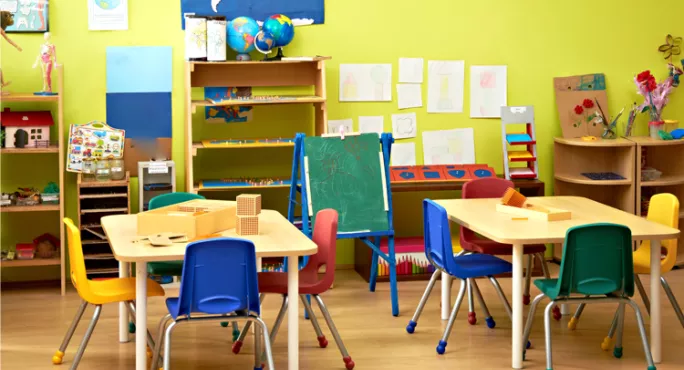- Home
- 3 things all EYFS teachers should remember in September
3 things all EYFS teachers should remember in September

No two days are ever the same in the EYFS.
Classrooms are constantly abuzz with laughter, chatter and discovery learning.
At the beginning of a child’s academic journey, play, social interaction and wellbeing are crucial.
And EYFS provides the foundations for children to prepare them for a lifetime of teamwork, self-development and conflict resolution that is necessary to succeed both in school and thereafter.
So, how then do we ensure that this is not lost after students have spent one-third of the most important years of school learning remotely?
The importance of PSED
When schools shut for an initial two weeks, no one foresaw that it would end up being such a long stint.
While, as teachers, we embraced new challenges and became more tech-savvy than we’d ever been before, we have yet to see the repercussions for our youngest students of this time spent socialising via screens as opposed to real life.
How can we bridge the social gaps that may be evident as the new year starts?
The key to all academic and social success lies in the wellbeing of students. Teachers need to realise that the beginning of this year is not time to revise and catch up on curricular areas children may have missed.
It is time to focus on the prime areas of the EYFS, particularly personal, social and emotional development (PSED), which is split into three areas:
- Making relationships.
- Managing feelings and behaviour.
- Self-confidence and self-awareness.
We, as adults, have all experienced Zoom quizzes over lockdown and, while it’s a good substitute, nothing compares to the face-to-face social interactions we had taken for granted previously.
The experience will be the same for students.
Time and space
We need to allow them time to play and settle in without the pressure of academic achievement.
Focusing on PSED will ensure that children develop the social skills necessary to become actively involved in the world around them. This is backed up strongly by research.
Dr Ferre Laevers is a professor at the Faculty of Psychology and Educational Sciences in Belgium. He has carried out extensive research into the connection between wellbeing and academic attainment.
He created the Lueven Scale by which practitioners can measure children’s wellbeing and involvement in classroom activities. This is then used to optimise learning opportunities - which only then leads to academic success.
Fiona Ryan is head of foundation stage where I work, at Deira International School. She echoes the sentiments proclaimed by Laevers. “Until children are socially and emotionally ready to learn, they are never going to retain academic knowledge.”
She says that we cannot compare this year to the usual academic starts. “We need to support children in forming friendships and relationships and make the school experience as positive as possible in order for children to succeed.”
Given that the 2020 FS1 cohort has missed out on a crucial social time in their development, she adds that recognising this lost social interaction time will need to be recovered is vital. “Teachers need to accept that it will be a unique journey for those students who are beginning school in the most obscure circumstances.”
Three key things to remember
As such, there are three fundamental things to remember for teaching an FS or Year 1 class in September:
- Adjust your expectations - students may need extra support to socialise with each other and form meaningful relationships.
- Empathise with their situation - remember the obstacles you overcame to adjust to a life of online learning. Imagine being four years old and not understanding why you can’t see your friends every day. Allow them extra time to settle away from home again.
- Adapt your pedagogical environment - set up areas that allow for small groups to interact as socially distanced as possible. Put markers out for students so that expectations are clear as they settle into their new learning space.
If recent times have taught us anything, it is the importance of human connections when things are uncertain in life.
Allow your students to build those connections first and watch academic success follow suit.
Claire Heylin is Primary English Lead at Deira International School in Dubai
Keep reading for just £1 per month
You've reached your limit of free articles this month. Subscribe for £1 per month for three months and get:
- Unlimited access to all Tes magazine content
- Exclusive subscriber-only stories
- Award-winning email newsletters

